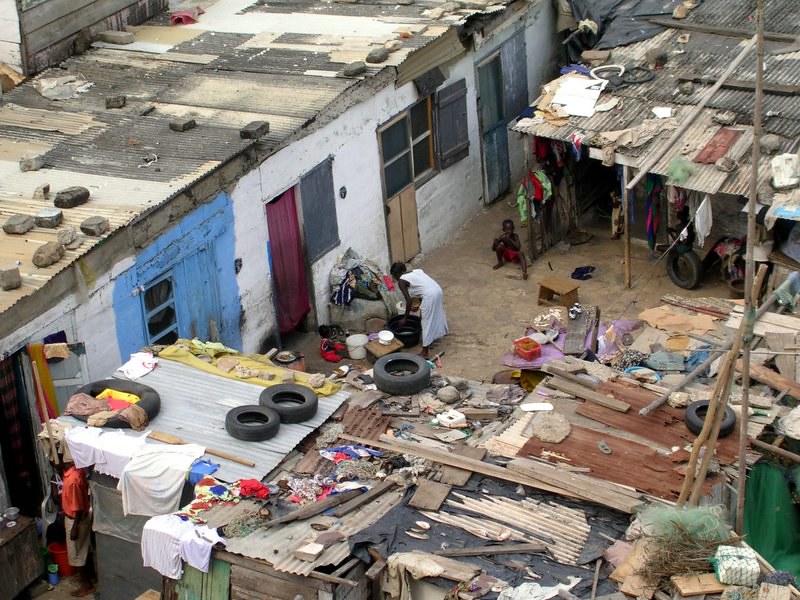Jesus describes the seed that falls on rocky ground as one that sprouts quickly but withers just as fast because it lacks depth in the soil. In the Parable of the Sower, this is more than a gardening metaphor; it’s a spiritual warning and a revealing picture of many rural communities. Poverty in rural areas is not only the result of a bad harvest or a failing market. It often springs from some place deeper than meets the eye. Shallow spiritual and economic foundations leave families and villages vulnerable to every possible crisis.
Shallow Roots and Withering Faith
When the truth of Scripture is not deeply rooted in the heart, spiritual growth remains stunted. People may hear the gospel, but without discipleship and understanding, the truth never takes root. This depicts the plant that Jesus talked about, which withered because it had no root (Matthew 13:6 AMP). Poverty, which is fundamentally a spiritual condition, has been portrayed as a circumstance that people can overcome through their own strength, strategy, and will.
Especially in most of our African rural communities, we have been deceived into believing that if we only could work harder, instil more discipline and sprinkle a bit of luck, we will overcome poverty. Unknown to most of us is the depth of this ancient spirit of poverty that plagues most families for generations. The West, despite its well-meaning intentions to eradicate poverty through strategies and programs, cannot solve spiritual problems with physical solutions.
The weapons of our warfare, the scripture says, are not against flesh and blood, but against principalities and powers of darkness in the heavenly places. Therefore, everything that we do to escape poverty and neglect the living Word of God will surely fail. The truth of scripture is the only defensive weapon against spiritual attacks, and it is the life and the light of men.

Photo: © Oxfam G20 Stunt/Flickr
Pride and the Devouring of the Poor
Spiritual blindness manifests in patterns observable in the economic behaviour of many rural communities. Without sound doctrine and faith rooted in the one true living God, there is a clear link to how individuals manage their resources such as money, time, land, and relationships; thus, homes often remain unstable despite having resources (Proverbs 24:3–6). Superficial efforts produce short-lived results; only deep, well-founded wisdom can bring lasting productivity. Another vivid image in Proverbs 30:13-14, AMP, shows arrogance blindfolding people to their moral faults, while injustice flourishes. Systems based on selfishness and pride widen the divide between the rich and the poor, allowing the powerful to “devour” the vulnerable for personal gain.
Pride goes before destruction. Whether in government, business, or even the church, when leaders exalt themselves and dismiss the plight of the poor, communities suffer. In contrast, the fear of God, which produces humility, opens the way for compassion, fairness, and shared prosperity. When we abandon self-righteousness and pride, we open the door to God’s empowerment and guidance through His Holy Spirit in our efforts to reduce poverty and promote equality.
“Development that disregards people’s spiritual identity-no matter how well-funded-cannot endure.’’
Poverty Is Systemic and Spiritual
The exploitation of the poor is not always physical; it is often economic, social, and institutional. Corruption, greed, and indifference deprive people of opportunities just as much as theft or violence. Isaiah 10:1–2 AMP condemns those who “decree iniquitous decrees” for turning the needy away from justice. God’s heart is always with the oppressed, and He calls His people to stand up for their cause.
Furthermore, poverty alleviation is not merely an economic concern; it is a moral and spiritual issue. In a world driven by competition and greed, humility encourages cooperation and community-focused development—values crucial for genuine rural transformation. Handouts may address immediate needs, but true transformation occurs when hearts and systems are renewed through righteousness. As followers of Christ, we must oppose exploitation while fostering faith, humility, and wisdom that empower communities from within. (Micah 6:8 AMP)
Building for Depth, Not Speed
Faith in Jesus Christ remains the strongest foundation for lasting change. The Bible teaches that every person is created in the image and likeness of God (Genesis 1:27 AMP) and is therefore deserving of dignity, justice, and equal opportunities. Development that disregards people’s spiritual identity—no matter how well-funded—cannot endure.
Lasting change grows slowly, like deep roots beneath the soil. It begins with a doctrine that shapes the heart, not just habits, with listening to Scripture and obeying it in our everyday lives. Rural communities with depth are not built overnight. They are formed through faith, patience, and the willingness to build for future generations.
Prayer:
Father in heaven, how majestic is Your name in all the earth! We praise You because You have not hidden Your truth from us. Father, teach us to build on Your truth. Please give us the patience to grow slowly but deeply. Uproot the systems of oppression and sins that keep the poor bound and voiceless. May humility replace pride, and justice replace corruption. Make our lives rich soil for Your Word, that we may bear fruit that lasts and uplift those You love.
In Jesus’ name, Amen.
Last Updated October 2025
(Zaituni/aSaC)
Cover Photo: © spinning jenny/Flickr

